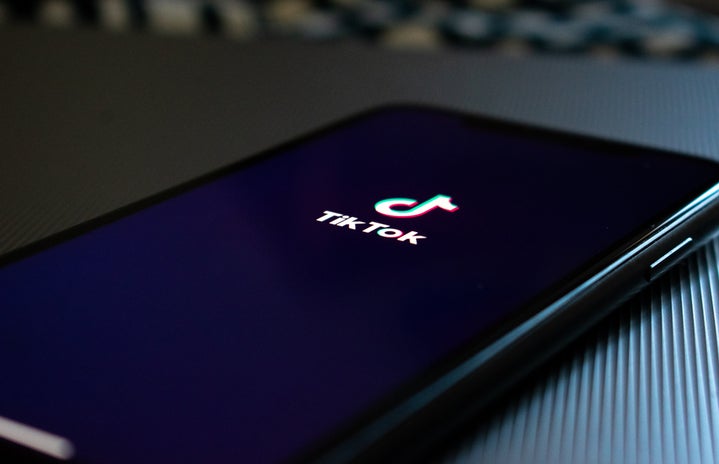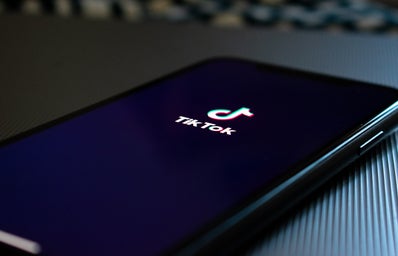I can fully admit it: I am addicted to social media.
I never believed older people when they talked about how dangerous social media was, about how young people are always glued to their phones, and all that talk bashing on social media. I always thought media was a good thing, something that connected people from across the world and was used for self expression or to document memories. All of that remains true, to a certain extent.
The problem came during high school. For most of my time on social media, I really only used Instagram and Snapchat, and there was only so much time a person could spend with those. Then, by my senior year, TikTok blew up, and I was done for.
There’s something addicting about the format of TikTok, especially for people who have a short attention span. I’m one of those people. I like my mind to be constantly stimulated, and scrolling through short videos scratches that itch and keeps me engaged. The problem is, it keeps me engaged for too long.
It wasn’t long after I downloaded TikTok that I began to spend far too much time on it every day. It went from 20 minutes a day to an hour to multiple hours. I would always tell myself, “okay, just five more minutes and I’ll do something else,” but I rarely ever kept that promise. This pattern has gone on for years; I’m a junior in college now, and up until recently, I’ve been stuck in that cycle.
The past year or so, my addiction to TikTok and social media in general has gotten much worse. With social media apps developing features to fit that short video format, it’s like everywhere I look, my attention is deflected from whatever else I was doing to a minute long video of someone renovating their bathroom or talking about an unsolved murder from the 70s. It’s too easy to fall down a rabbit hole and lose hours of your day to it. At least, it was too easy for me. Over time, I’ve felt like my attention span has gotten even shorter than it initially was. It’s much harder for me to stay engaged in longer forms of media like movies, shows, and books. On top of that, my mind feels changed, in a way. I don’t speak as eloquently as I used to, writing doesn’t come as easily to me anymore, and I truly think a big part of that is because of my addiction to TikTok. My vocabulary has decreased because I’m constantly staring at a screen filled with internet vernacular and I no longer have the attention span to engulf myself in the things I enjoy. I am constantly glued to my phone and, honestly, it’s suffocating.
Aside from that, there was the never-ending slew of jealousy I felt towards people who seemed to be living far better lives than my own. I have a personal problem with comparing myself to others, and social media definitely contributes to that. I look at people my age who are exceedingly wealthy, beautiful, and far more productive than I am, and I can’t help but feel envy. I compare their lives with my own and feel inadequate, like I’m not doing nearly enough with my life. Although I’ve made strenuous efforts to combat this problem of mine, social media, and TikTok in particular, constantly pushes these types of people on my feed and in my face, and it’s almost impossible to avoid.
There came a point about a month ago where I couldn’t take it anymore. So, I deleted TikTok.
We all want to believe that social media is good, and that the older generations are wrong about it. However, I think everyone knows that social media can be harmful for mental health, but it’s a lot more difficult to step away from it than people talk about. Without TikTok, I still find myself scrolling through Instagram for far longer than I should. Limiting social media use is difficult, and I didn’t realize just how difficult it was until I tried to do it.
However, throughout the past month, I’ve seen a genuine incline in my mental health. My attention span has slowly but surely been coming back, and I’m not confronted with envy as often. Without TikTok, which was the platform I spent most of my time on, I have been forced to take time away from my phone and fill my time with other things. Whether that be reading, baking, studying, watching a movie, or starting a new show, I’ve been able to sit down and spend quality time with myself. Some of those aforementioned things aren’t the most productive, but at least they don’t come with detrimental side effects to my mental health.
Some people can use social media and not experience those negative effects. They can regulate their time, not compare themselves to those they see on their feed, and can consume the content in a healthy manner. I am not one of those people. Accepting that was difficult, but once I did, it was far easier to evaluate my life and decide to remove myself from the source of harm.


